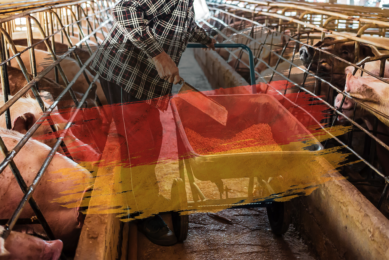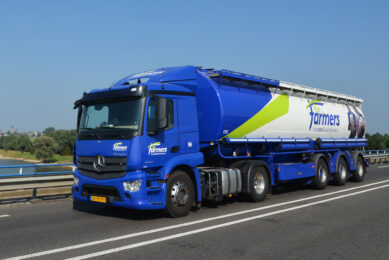Thai Foods Group trying to get a share of the Thai market
For years the Thai market has been dominated by large integrators like Charoen Pokphand and Betagro. Other companies, however, also try to gain their share in the agricultural market. On the eve of the tenth edition of VIV Asia, in Bangkok, Thailand, Thai Foods Group has set greedy eyes on becoming number three in the agribusiness market.
By Vincent ter Beek* and Ad Bal*
Thailand is known as the kitchen of Asia – and it is well-known that it was here where agribusiness development really caught on. Larger agricultural conglomerates like Charoen Pokphand or Betagro have had the possibility of developing into a feed-to-food integrator and even important players in the international Asian agribusiness markets. Charoen Pokphand Foods (CPF), with a history going back to 1921, has developed itself to be the number one Asian agribusiness company with stakes in a wide variety of countries in Asia and beyond, having investments even in China and Russia.
Betagro, on the other hand, in business since 1967, has grown domestically to produce quality products focused on selling, for example, on the Japanese market by securing cooked-meal joint-ventures.Besides these two, however, interesting developments are going on. One of the parties trying to get and expand their share of the market very quickly is Thai Foods Group (TFG). Headquartered in Ayutthaya, 100 km north of Bangkok, the company was founded 20 years ago by Winai Tiawsomboonkij. The company started keeping poultry for the domestic market in 1997, with 20,000 head.
A different picture
In 2011, the picture is completely different. TFG has developed to become a multi-livestock business. Growing ‘securely and efficiently’, the group has come to consist of ten chain companies, producing both pigs and poultry, with an even emphasis on both animal species. Key in the company’s strategy is the Greater Bangkok area, which is undeniably Thailand’s main market with about 12 million inhabitants. Hence, TFG has been locating its current and future farms in a zone around the capital, in the provinces of Kanchanaburi (west of Bangkok), Suphanburi (north west) and Chonburi (south east). Aiming to produce high quality against a low cost, TFG’s projections for the next couple of years reveal very high ambitions, with a target of producing 1.5 million day-old-chicks per week (or 200,000 per day) by mid-2011. Currently, the company owns parent stock operations both south east and west of
In 2011, the picture is completely different. TFG has developed to become a multi-livestock business. Growing ‘securely and efficiently’, the group has come to consist of ten chain companies, producing both pigs and poultry, with an even emphasis on both animal species. Key in the company’s strategy is the Greater Bangkok area, which is undeniably Thailand’s main market with about 12 million inhabitants. Hence, TFG has been locating its current and future farms in a zone around the capital, in the provinces of Kanchanaburi (west of Bangkok), Suphanburi (north west) and Chonburi (south east). Aiming to produce high quality against a low cost, TFG’s projections for the next couple of years reveal very high ambitions, with a target of producing 1.5 million day-old-chicks per week (or 200,000 per day) by mid-2011. Currently, the company owns parent stock operations both south east and west of
Bangkok and a third will be added in the middle of 2011, to allow for this expansion. To illustrate the dramatic growth: in 2008, total daily production was 60,000 day-old-chicks/ day – this equals more than 200% growth within a few years’ time.In pigs, ambitions are hardly less amazing. The company hopes to become the third-largest pig producer in Thailand by 2012, after CPF and Betagro. TFG aims to have over 54,000 parent stock by 2012, which would equal 5.88% of the market – or rank third in the market. In comparison, in official data on 2009 supplied by the Swine Raisers Association of Thailand, CPF was at 217,000 head combined parent stock and Betagro had 57,266 head.
Asian markets going through reversion of roles As for longer-term agribusiness projection, the Asian markets will see a partial reversion of roles in the next couple of years, said Eric J. Brooks, senior analyst for eFeedlink. Brooks pointed out that China and Thailand are the two major countries driving change in Asian agribusiness. He said that at the moment, agricultural demand comes from China; and innovation mainly comes from Thailand. This image is going to turn around, he said, pointing that the Association of South East Asian Nations (Asean) will add its import demand to that of China. A growing insufficiency of available arable land will result in East Asia as a whole, not only China, becoming an importer of feed. Vietnam, Brooks said, serves as a good example as this country is about to overtake Japan as the world’s number two soy importer within 20 years. Imports of corn, fishmeal also grow faster than feed or livestock output.In reverse, Brooks also said that China will use its scale advantage to challenge the technical supremacy of the Thai integrators. Thai agribusiness conglomerates like CPF and Betagro pioneered the exporting of meat and fish to large markets like the EU and Japan. Thai agribusiness also proved that is was possible for a developing country to contain lethal diseases like avian influenza. It was CP’s entry to the Chinese market which started the country’s modernisation of the poultry sector – and indirectly that of other types of meat. It is to be expected, Brooks said, that eventually Chinese agribusiness conglomerates will build on this tradition – and grow beyond them. |











